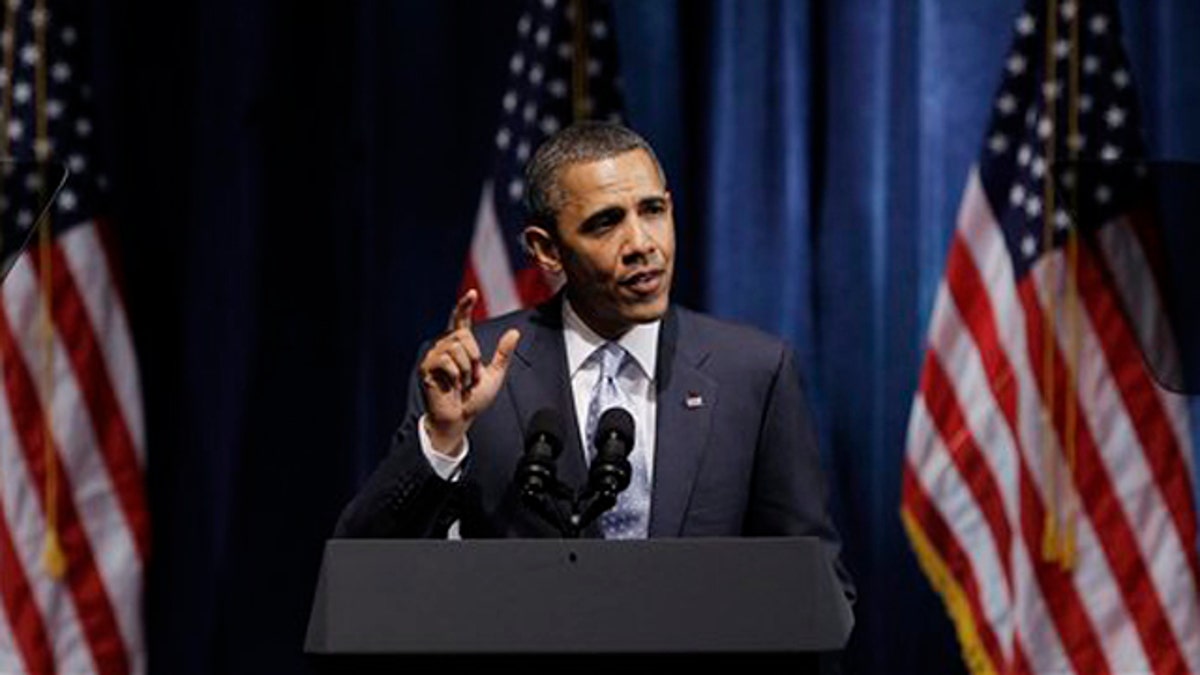
President Obama speaks at the Austin City Limits Live at the Moody Theater May 10 in Austin, Texas. (AP)
President Obama is planning to reach out anew to the Middle East and beyond in the wake of Usama bin Laden's death, appealing to people in the region to reject Al Qaeda's ideology.
The president is looking to deliver a speech as early as next week about U.S. policy in the Middle East. The address had been on the president's agenda, but the killing of bin Laden adds an important new element to the message.
White House Press Secretary Jay Carney said Wednesday that the president would deliver the speech "relatively soon," without going into detail.
The Wall Street Journal first reported that Obama plans to use bin Laden's death to argue that uprisings throughout the Middle East and North Africa, not Islamic militancy, represent the future of the region.
Though the timing of the speech is up in the air, aides suggested to Fox News that Obama could deliver it before leaving on a weeklong trip to Europe May 23.
Aides said Obama's emphasis would be regional and political, highlighting the democratic values that have linked the popular uprisings that started in Tunisia and Egypt and quickly spread throughout the region. But Obama was not expected to focus on religion, as he did in his address to the Muslim world during a 2009 trip to Cairo.
A U.S. official said Obama had originally planned to deliver the speech during the first week in May, but it was pushed back because of the raid in Pakistan that led to the death of bin Laden.
Bin Laden's death has given the White House an opportunity to cast Al Qaeda as a movement past its prime, as young people throughout the Middle East and North Africa turn to political protest, not terrorism, to vent their grievances.
The post-bin Laden push coincides with another White House push on immigration reform. After Obama delivered a speech on the subject Tuesday in El Paso, Texas, White House advisers were planning a conference call Wednesday afternoon to discuss proposed changes in the immigration system.
As he delivers a new message to Muslim nations, Obama is grappling with the ongoing U.S. military involvement in Libya, where the popular uprising is in danger of becoming a stalemate as Muammar al-Qaddafi clings to power.
Click here to continue reading at The Wall Street Journal.
The Associated Press contributed to this report.




